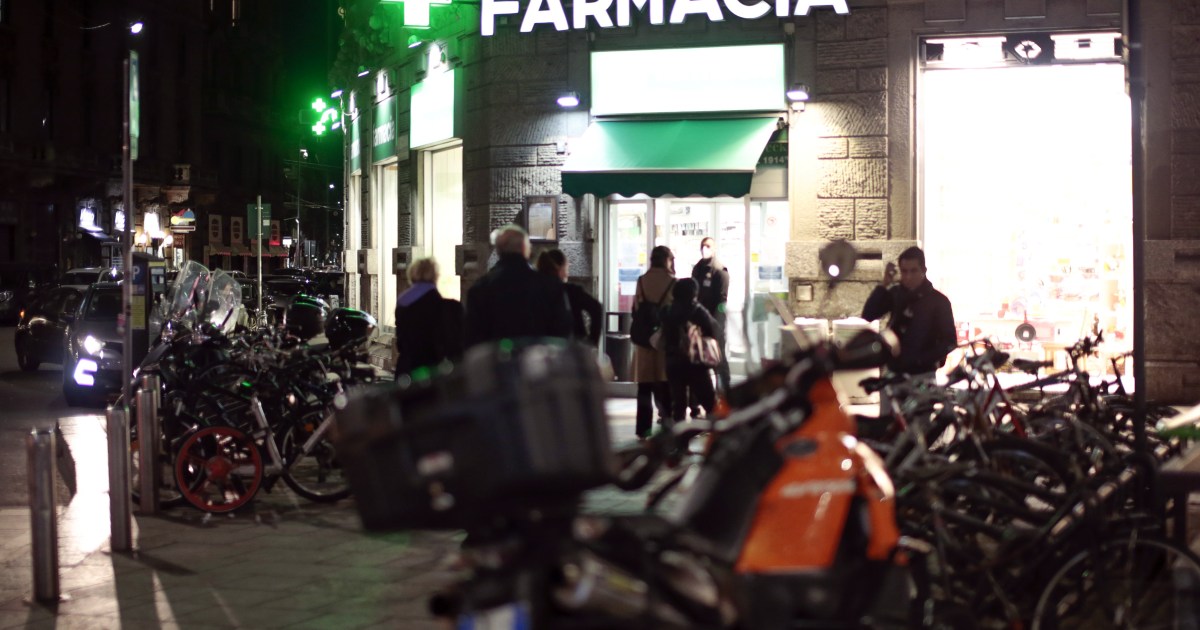One day last November, the police forces from several Italian regions held a meeting to prepare for a special security operation against the mafia. The police did not intend to confront any old gang, but rather were targeting "Ndrangheta", the most powerful organized crime network. And brutality in Italy.
With this process, the Mafia Prosecutor, Nicolas Grateri, and other investigators from Calabria, in southern Italy, began a campaign that can be seen in the time of the Corona pandemic as a message saying, “The authorities will not give up easily when it comes to solving problems in which the mafia intersects with politicians and care Health. "
The mafia penetrated sectors of the health system in southern Italy, including hospitals and pharmacies, while some politicians allowed themselves - as some say - to buy their debts the Ndrangheta network to cover their inappropriate dealings in this sector.
"There are many cases related to corruption in the health sector," said General Prosecutor Graateri, without revealing the details of the recent investigation, especially since this sector has a lot of government funds flowing into its channels, and he explains that "the sector constitutes about 70% of the regional budget, which makes it Attractive to the mafia. "
Grateri, 62, has been a central figure in the battle against organized crime for decades and lives under police protection.
Skip the obstacles
The latest case he is investigating concerns a prominent politician from Catanzaro, the capital of Calabria, called Domenico Talini, who has been placed under house arrest and is suspected of having helped the Ndrangheta network overcome bureaucratic hurdles to obtain permits for new investment by the mafia, and has opened a chain of pharmacies in Calabria. And other Italian regions.
In exchange for this help, it was reported that the Mafia helped him obtain votes to win the regional elections in 2014, and in addition to Talini, justice officials are investigating about 20 members of the "Grand Arcary" criminal gang.
The tradition of politicians buying votes from gang families dates back to an ancient time and is common in Italy.
The base of Ndrangheta lies in the Calabria region, where about two million people live. Since the 1990s, this network has become the largest mafia organization in Europe, and it is reported that it has surpassed the "Camorra" criminal network based in the Campania region, as well as the Costa Nostra network. In Sicily, besides cocaine trafficking and smuggling of waste, Ndrangheta engages in other criminal activities.
Among these activities is the medical sector, which Graateri describes as "a sector in which several overlapping interests are concentrated."
While some experts formulate the situation as follows: When the state fails to provide services, citizens search for other means to meet their needs, and say that the Ndrangheta network seeks to encourage state failure, anti-mafia author Roberto Saviano believes that “any system whose mechanisms do not work is exactly where In it, the mafia destroys everything, and thus it achieves its own victory through the financial liquidity it possesses and the means of control and organization. "
In Calabria, the medical sector has been suffering from shortcomings for a long time, and like other regions in southern Italy, small and medium hospitals have been forced to close their doors.
These developments have increased the suffering of citizens in times of the pandemic.
The author, Saviano, comments on the situation by saying, "Pandemics do not create crises, pandemics exacerbate existing crises."
But what is the role of the Ndrangheta network?
Experts say that children of criminal families are studying medicine in order to obtain influential positions in the administration and in hospitals.
The health care system
However, Grateri cautions against making public judgments, and says that belonging to a certain family does not mean that a person automatically becomes a criminal.
Investigators have also found a wide range of criminal activities patterns, among them services such as hospitalization or funerals. The list of crimes committed goes from exclusive obtaining contracts and extortion to exaggerated high prices.
The state funds the health care system in Italy, and provides basic health services to citizens, and in addition to this government system, there are better and faster health services in private hospitals, but they are more expensive.
Residents of Calabria have long complained of poor health facilities and a shortage of medicines and medical devices. The government responded in Rome for several years by sending a government commissioner, and it seems that he has not achieved success in his mission.
Shortcomings became more apparent with the first waves of the pandemic that hit Calabria hard, news of injuries grabbed headlines in Italy and in the rest of the world, the commissioner was dismissed from his position for incompetence, and the government in Rome was struggling to find a replacement.
Cutting ties between politicians, the mafia, and the health sector requires more than just security pursuits, and Grateri agrees.
Nevertheless, the security and justice men are fulfilling their duties. "We have to remain on alert," says Grateri, but the culture, mentality and perceptions must also be changed.

